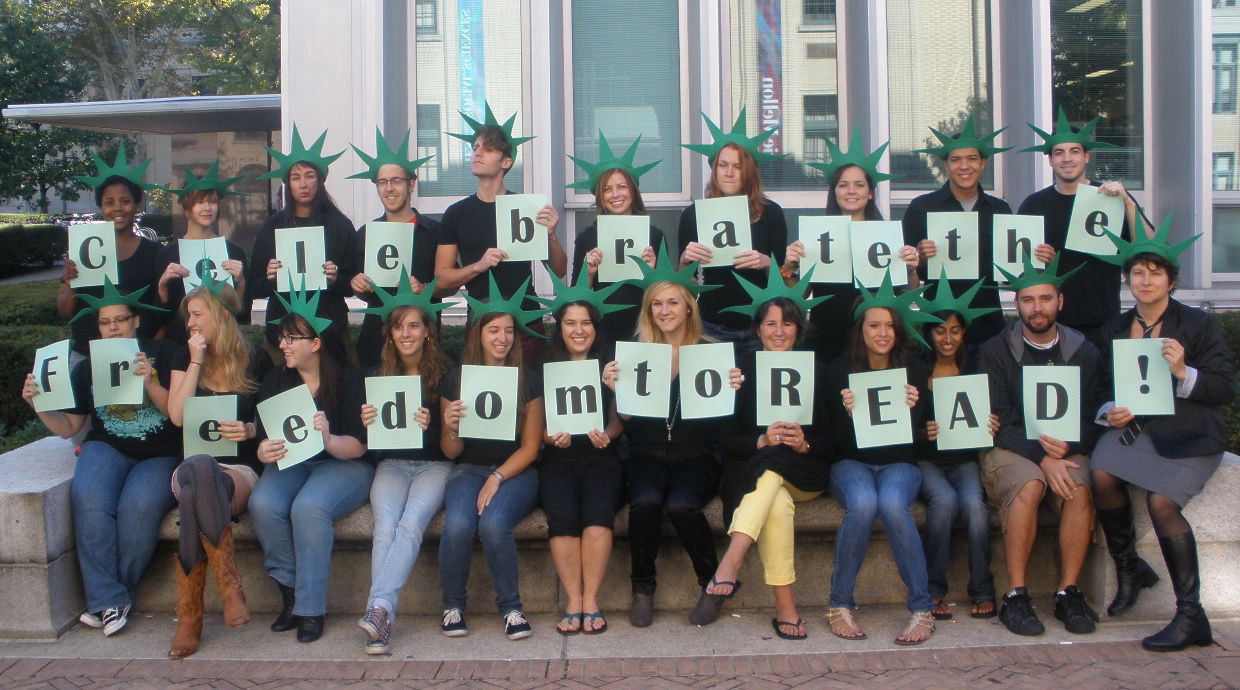Celebrating Banned Books Week All Semester Long
In 1982, the American Library Association launched Banned Books Week as a way to celebrate the freedom to read. It was at a time when books faced increased challenges from school districts and other groups that objected to their content. 28 years later, Banned Book Week has become an international occasion that draws attention to controversial books and promotes intellectual freedom. This year it runs from September 24 to October 2nd.
English professor Kathy M. Newman, who is writing a book on the 1950s – a period of anti-Communist censorship, created a new class that examines book censorship from the mid-twentieth century through the present.
“These students, many of them born in the late 1980s and early 1990s, have no connection to something like McCarthyism,” said Newman. “But they have their own unique experiences with censorship. I was surprised to learn on the first day of class how many of the students had battled their own high school administrations over issues like gay rights and theatrical censorship. These students are fighting new battles, and this class will hopefully give them a historical perspective on their own efforts.”
The class, in high-demand from English and drama students, focuses on three types of censorship during America’s mid-century: political, racial and sexual. The students will read texts such as Arthur Miller’s “The Crucible,” Harper Lee’s “To Kill a Mockingbird” and James Baldwin’s “Giovanni’s Room” as well as written excerpts from both sides of the controversies.
“I want the students to learn how to empathize with those doing the censoring,” said Newman. “If we dismiss the perspective of the censors of the past, we won’t be able to prevent the worst kinds of censorship from taking place in the future.
As HSS Creative Writing major Claire McKendry explains, she had her own reasons for enrolling in this class. “I come from a very small town in California where cultural censorship was common. Certain plays weren’t performed at my high school, for example. I am hoping to gain a better understanding of censorship in the ways I have experienced it in other parts of the country.”
Like McKendry, HSS Professional Writing major Jessica Hersh has had her own brushes with the censor. “My freshman year of high school the school board debated removing To Kill A Mockingbird and I Know Why the Caged Bird Sings due to their ‘mature” content. I have continued to be perplexed as to why influential and interesting writing would be discouraged.”
Newman also plans to take the class to see the movie about Ginsberg’s famously censored poem, Howl, premiering on September 24th during banned book week.
“Being a parent has changed my views on censorship from when I was in college,” said Newman. “I find myself more scandalized by popular culture, and I want to be protective of what my children are exposed to. At the same time I continue to believe that we must defend free speech of all kinds, and I hope that I and my students leave this class with our minds a little more open then when we started on this journey.”
